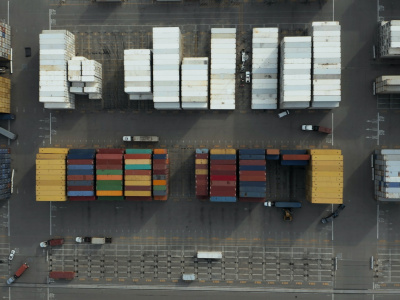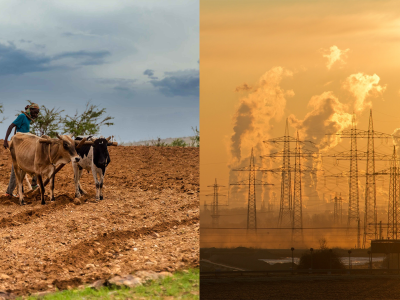
Africa-EU climate and energy diplomacy in times of geopolitical crisis (2022-2023)
This project seeks to contribute to recentering the EU’s external climate and energy diplomacy and specifically improving Africa-EU cooperation on climate adaptation and green transition.
About the project
The EU’s green transition has remained broadly on track with key climate legislation passed to decarbonise its economy. External shocks such as the Russian invasion of Ukraine have changed the way the EU looks at energy security. In addition, the generally difficult geopolitical environment, given the less stable relations between China and the US, as well as competition with them, respectively, has led the EU to adopt a more assertive approach to protect its green transition interests.
The EU’s climate and energy agenda and its recent crisis measures risk exacerbating tensions with countries in the Global South that see the EU’s green transition as an exclusive project and a danger to their economic development.
While both the EU and Africa see climate change as an existential threat, climate diplomacy between the two continents has had a two-step-forward, one-step-backwards dynamic. Recently, African countries accused Europe of acting unilaterally and mobilising insufficient quality adaptation finance.
This project covers the state of play on the climate and energy debate in the EU-Africa partnership and makes recommendations with regard to green energy, industrialisation, trade and climate adaptation.
Project outputs
Africa-EU climate and energy diplomacy in times of geopolitical crisis
In twin papers, Poorva Karkare, Alfonso Medinilla, Hanne Knaepen and Koen Dekeyser cover the state of play on the climate debate between the EU and Africa focusing on green energy and industrialisation, and climate adaptation.
Read the papersUnpacking European climate adaptation diplomacy to better align with Africa
In this LinkedIn article, Hanne Knaepen unpacks what EU climate adaptation diplomacy is.
Read the articlePathways for future EU climate adaptation diplomacy
In this LinkedIn article, Koen Dekeyser unpacks the potential pathways for EU climate adaptation diplomacy.
Read the articleAfrica-EU climate and energy diplomacy in times of geopolitical crisis
This informal briefing in June 2023 provided participants with an opportunity to discuss the state of play on the climate debate between the EU and Africa, focusing on green energy, industrialisation and climate adaptation
Learn about the eventMaking a geopolitical case for EU-Africa climate cooperation
In this Euractiv op-ed, Poorva Karkare and Alfonso Medinilla argue green industry partnerships are the way forward for Africa and Europe to offer each other what the other side needs - critical raw materials and clean energy to the EU, and strategic investments and technology transfer to Africa.
Read the op-edIn search of common ground
In this limited podcast series, we zoom in on EU-Africa climate diplomacy and how the EU and Africa can overcome diplomatic tensions in the realm of climate and energy.
In Part I, Bruce Byiers sat down with Pascal Lamy and Geneviève Pons to discuss efforts to bridge the gap between European and African climate positions, particularly their proposal to link development with trade and environment protection
In Part II, Hanne Knaepen sat down with Tracy Kajumba to discuss the status of Africa-Europe climate diplomatic relations, Africa's climate financing gaps, the importance of equity in partnerships and whether the principle of climate justice is fading away from the spotlight.
The case for an Africa-Europe trade-climate-development triangle
In this commentary, Bruce Byiers argues that the need to link thinking and discussions around Africa-Europe relations on trade, climate and development looks increasingly important for maintaining constructive diplomatic relations between the two continents.
Read the commentaryThis project benefits from the support of the European Climate Foundation.







